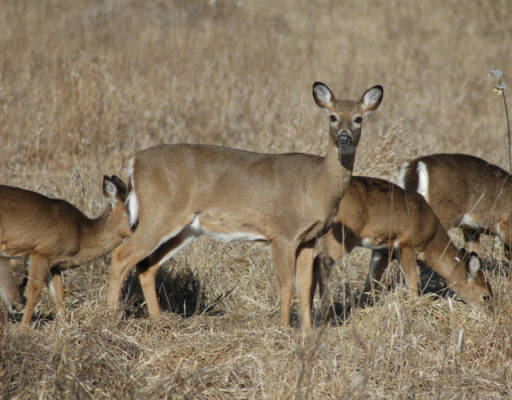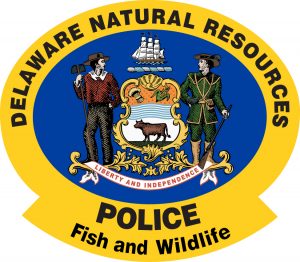DOVER – With shorter days ahead – especially after the Nov. 4 change from daylight savings back to Eastern standard time – DNREC’s Division of Fish & Wildlife reminds Delaware motorists, especially 9-to-5 workers driving home at dusk, to be alert for deer crossing roadways.
 National statistics show that at least half of all deer-vehicle collisions occur the last three months of the year, with the highest number of deer struck on the roadways in late October through mid-November. State Farm Insurance recently reported that motorists made 5,435 deer/vehicle collision insurance claims in Delaware between July 1, 2017 and June 30, 2018, a 2.9 percent decrease from 5,600 during the same time period last year. Delaware ranks 24th this year out of the 50 states and the District of Columbia included in State Farm’s report on where deer-vehicle collisions are most likely to occur; neighboring Pennsylvania ranks third. Delaware is considered a medium-risk state with a 1-in-139 chance of a collision, compared to the national average of 1-in-167. Average property damage claims in deer-vehicle collisions run $4,341.
National statistics show that at least half of all deer-vehicle collisions occur the last three months of the year, with the highest number of deer struck on the roadways in late October through mid-November. State Farm Insurance recently reported that motorists made 5,435 deer/vehicle collision insurance claims in Delaware between July 1, 2017 and June 30, 2018, a 2.9 percent decrease from 5,600 during the same time period last year. Delaware ranks 24th this year out of the 50 states and the District of Columbia included in State Farm’s report on where deer-vehicle collisions are most likely to occur; neighboring Pennsylvania ranks third. Delaware is considered a medium-risk state with a 1-in-139 chance of a collision, compared to the national average of 1-in-167. Average property damage claims in deer-vehicle collisions run $4,341.
Attentive driving is the best way to avoid deer collisions. Keep these tips in mind, as suggested by the Delaware Office of Highway Safety, Delaware police agencies, auto insurance companies, and the Division of Fish & Wildlife:
- Turn your headlights on at dawn and dusk and keep your eyes on the road, scanning the sides of the road as well as what’s ahead of you.
- When there is no oncoming traffic, switch to high beams to better reflect the eyes of deer on or near the roadway.
- To reduce your risk of injury in a collision, always wear your seatbelt.
- Be especially aware of any distractions that might take your eyes off the road, even if only momentarily, such as cell phones, adjusting the radio, eating, or passenger activities.
- Watch for “Deer Crossing” signs that mark commonly-traveled areas, and be aware that deer typically cross between areas of cover, such as woods or where roads divide agricultural fields from woods.
- If you see a deer crossing the road ahead, slow down immediately and proceed with caution until you are past the crossing point. Deer usually travel in groups, so if you see one deer, there are likely to be others.
- Slow down and blow your horn with one long blast to frighten deer away. Do not rely on devices such as deer whistles, deer fences and reflectors to deter deer, as these devices have not been proven to reduce deer-vehicle collisions.
- Do not swerve to miss a deer – brake and stay in your lane. Losing control of your vehicle, crossing into another lane, hitting an oncoming vehicle or leaving the roadway and hitting another obstacle such as a tree or a pole is likely to be much more serious than hitting a deer.
- If you hit a deer, stop at the scene, get your car off the road if possible and call police. Do not touch the animal or get too close; an injured deer may bite or kick, causing serious injury.
For more information about white-tailed deer in Delaware, contact the Wildlife Section at 302-739-9912.
Media Contact: Joanna Wilson, DNREC Public Affairs, 302-739-9902

